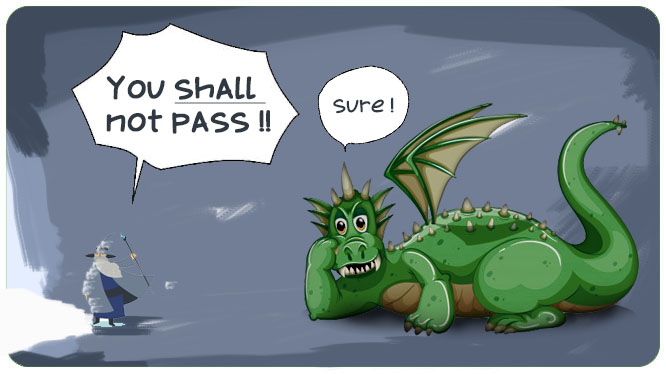Use of will and shall With Examples

When we want to talk about future plans in English, we can use various forms. We can use the present continuous, “be going to”, “will” and “shall”. Because of their simple structure, “will” and “shall” are frequently used more, but they can be confusing to many. Therefore, we need to learn the difference between the two.
When to use will:
We use “will” for the following situations:
1- To Describe Future Events:
- The train will be late today.
- We will be at the party until midnight.
- How long will you stay in Japan?
2- To Make a Prediction:
- Global warming will raise sea level.
- I think it will rain today.
- She doesn’t think she will pass the driving exam.
3- To Make a Request:
- Will you bring some more water, please?
- Will you close the windows?
- You will help with the cleaning today. Right?
How to use will:
The easiest form to express future actions is “will” because this structure is the same for all subjects and you don’t need to change anything for the verb.
Singular:
- I will be (I’ll be).
- You will be (you’ll be).
- He/she/it will be (he/she/it’ll be).
Plural:
- We will be (we’ll be).
- You will be (you’ll be).
- They will be (they’ll be).
To form the negative, we only add “not” after “will”.
Singular:
- I will not be (I won’t be).
- You will not be (you won’t be).
- He/she/it will not be (he/she/it won’t be).
Plural:
- We will not be (we won’t be).
- You will not be (you won’t be).
- They will not be (they won’t be).
By inverting the subject and “will” we end up forming the question form:
Singular:
- Will I be?
- Will you be?
- Will he/she/it be?
Plural:
- Will we be?
- Will you be?
- Will they be?
When to use shall:
“Shall” is often used an alternative to “will”, and you can see the presence of this expression in famous literature work. “Shall” is frequently associated with question forms in contrast with “will”, which used to form affirmative and negative structures.
We use “shall” in the following situations:
1- To make offers:
- Shall I make some tea?
- Shall we go to the mall?
- Where shall I drop you off?
2- To provide suggestions:
- Shall we start reading this novel?
- Who shall we invite to the party?
- Shall we go to the coffee shop now?
3- To express formal obligations:
- You shall not pass.
- All staff shall provide IDs before the entrance to the workshop.
- The accused shall appear in court next week.
4- To make a promise:
- I shall never forget your help for me.
- We shall do everything we can to help you.
- I shan’t be late.
5- To describe the future formally:
- We shall overcome this pandemic.
- The tests shall be carried out by an authority.
- Access to the mall shall be limited due to prevent the spread of disease.